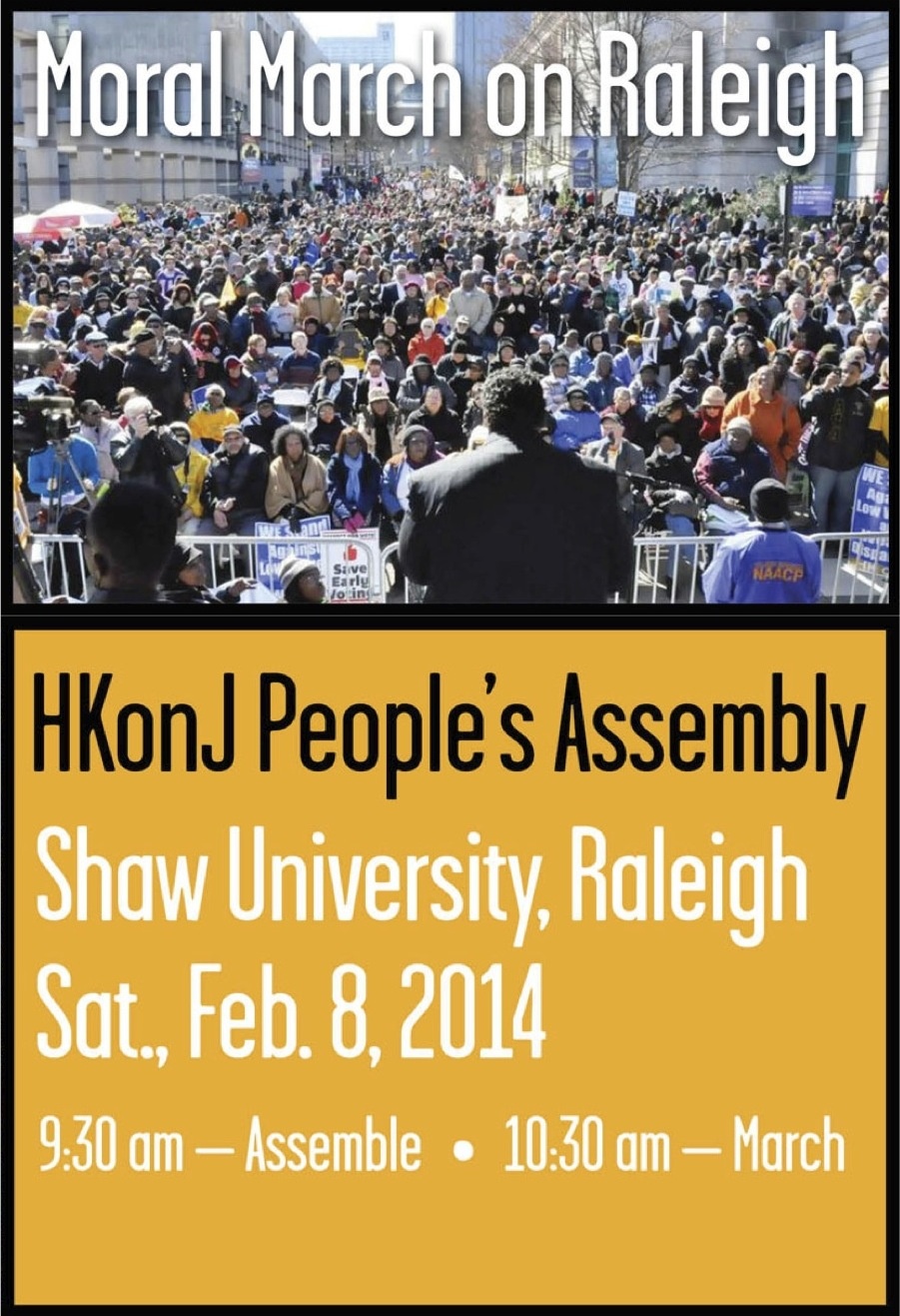From Selma to Raleigh: Moral Movement readies for mass march on NC capitol

North Carolina's Forward Together Moral Movement that led to the arrests of over 900 people last year in nonviolent Moral Monday protests against the state government's regressive agenda is gearing up for another year of action, starting with a mass march on the state capitol in Raleigh on Saturday, Feb. 8.
Scroll below to listen or read along with this article.
"We're sending out the call," said Rev. William Barber, president of the N.C. NAACP and the movement's chief architect. "Just like Dr. King said 'come to Selma' in 1965, we're saying 'come to Raleigh' in 2014.'"
The Selma to Montgomery marches of 1965 grew out of voting rights organizing in Alabama and involved three protests that marked a watershed moment in the U.S. civil rights movement.
The Moral March on Raleigh, as the Feb. 8 event is billed, draws on that history at a time when voting rights are under attack in North Carolina and other Southern states. Last year, North Carolina's Republican supermajority-controlled legislature passed a voting law that's been called the worst voter suppression legislation in the nation, with numerous provisions that disproportionately affect voters of color, women, the elderly and youth.
The Moral March on Raleigh also builds on a tradition with roots closer to home: North Carolina's Historic Thousands on Jones Street People's Assembly marches, named for the address of the state legislature. Held annually on the second Saturday in February since 2007, the event -- nicknamed "HKonJ" -- involves a broad coalition of social justice groups led by the NAACP that promotes a 14-point legislative "people's agenda" that includes expansion of voting rights, better funding for education, livable wages, and health care for all.
The HKonJ movement won a number of key legislative victories, including a law allowing same-day voting and another that banned racial discrimination in administration of the death penalty -- both of which were overturned by the legislature last year.
The legislature's reactionary response to the gains made by the HKonJ coalition -- and last year's decisions to block Medicaid expansion to 500,000 North Carolinians under the Affordable Care Act and to cut extended unemployment benefits for some 170,000 long-term jobless -- spurred the Moral Monday protests, which began last April and continued in Raleigh for 13 weeks before spreading across the state. The protests gained national media attention and have inspired similar actions in other states.
The Feb. 8 Moral March on Raleigh is the North Carolina movement's first mass protest of 2014 -- a key political year with all members of the General Assembly facing re-election this fall.
"If you believe that an injustice anywhere is a threat to justice everywhere, if you understand that what happens in North Carolina has implications for the future of the nation, if you believe that we can build a moral movement together to save the soul of our state and country, then join us as we tell Governor McCrory and the North Carolina General Assembly, 'Forward Together, Not One Step Back!'" says a statement on the HKonJ website.
Like the previous HKonJ marches, the Moral March on Raleigh will kick off at Shaw University, the historically black school where a 1960 meeting of student activists led to the formation of the Student Nonviolent Coordinating Committee, one of the key organizations of the civil rights movement. Marchers will begin gathering at 9:30 a.m. with the march set to kick off at 10:30 a.m.
For more information about the event, click here, and check out this video that discusses the reasons for the march:
Tags
Sue Sturgis
Sue is the former editorial director of Facing South and the Institute for Southern Studies.
